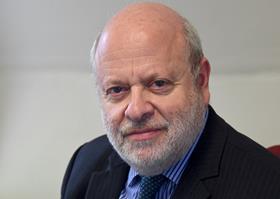
There are certain international bodies which occasionally turn their attention to lawyers. It is worth paying attention then, because their principles become the benchmark for future political struggles we may have with our government over core values, such as the independence of the profession.
The United Nations is one such body. It last published a universal document on lawyers in 1990, in its ‘Basic Principles on the Role of Lawyers’, which has subsequently been cited in many countries in political arguments between lawyers and governments.
Now its Special Rapporteur on the independence of judges and lawyers, Diego García-Sayán from Peru, has published a report on the role of bar associations in a democratic society. Bars around the world should take note.
Given that the Law Society was one of the few professional bodies which responded to the consultation which led to the report, it is no surprise that our very specific regulatory system, as introduced by the Legal Services Act 2007, is recognised. We are one of five models cited – ‘predominantly regulated by independent or delegated authorities’.
Nevertheless, the report is much more aimed at countries at the other end of development of their legal systems, in which bars are either non-existent or run entirely by the government.
As a result of having to cover such a wide spectrum of models, the report has statements which, read on their own, might not please the SRA or the Legal Services Board. For instance:
- ‘In order to ensure the integrity of the entire profession and the quality of legal services, it is preferable to establish a single professional association regulating the legal profession’ - we have three covering just the solicitors’ profession in England and Wales: the LSB, Law Society and SRA, never mind the three covering English and Welsh barristers, and then further bodies covering lawyers in other parts of the UK, all of which is hardly a recipe for simplicity and comprehensibility, nor for easy cross-border movement within the UK itself;
- ‘In order to safeguard the independence of the legal profession, the bar association should be responsible for regulating the access the legal profession, developing and implementing minimum standards of professional behaviour, providing initial and continuing education to the members of the legal profession and handling disciplinary proceedings against lawyers’ - this still holds true for us, but runs counter to the arguments continually put by the SRA and LSB for complete independence of the SRA, particularly if the composition of the SRA board were to continue to include a majority of non-lay members, given that another principle in the UN report is that ‘In order to guarantee the independence of the legal profession, the majority of members of the executive body of the bar association should be lawyers elected by their peers’;
- ‘Situations where the State, in particular the executive branch, controls all or part of a bar association or its governing body are incompatible with the principle of the independence of the legal profession’ - in our case, the executive appoints all the members of the LSB’s board;
But the report is not really aimed at us, since we have an old and well-functioning legal system which is universally recognised for its quality and independence, despite the strange quirks introduced by the Legal Services Act 2007. However, it is good to be reminded of its strangeness, because we are going to have to do a good bit of explaining in the coming years during the trade negotiations following Brexit. Within the EU, and as part of the EU, which has the responsibility for negotiating trade deals on behalf of its members, such quirks made no difference, since all European lawyers were treated on the same basis, and the EU’s legal systems cover a wide variety of differences, as we will see below.
It is interesting to note in other parts of the report how far governments intervene in the running of bars, even in democratic countries. The examples given are entirely dependent on who responded to the Special Rapporteur’s survey, which is hardly comprehensive – 28 countries and 11 bars. Since the Council of Bars and Law Societies was one of the respondents, we have a good deal of information about Europe.
So, for instance, the government participates directly in the work of the executive and disciplinary bodies of the Cyprus Bar. In Denmark, it appoints some of the members of the bar’s disciplinary committee. It determines lawyers’ fees in a number of countries, such as Slovakia. We would find such practices odd and probably unacceptable.
Overall, though, this report is most welcome, in setting universal standards for bars around the world, which we can use in our interventions on behalf of foreign bars facing problems with their governments, and in our own domestic struggles.































No comments yet